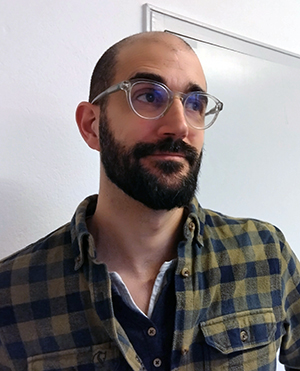Programme redesigned to meet tomorrow's challenges

Aeronautical and Vehicle Engineering at KTH is more than just a vehicle and transport programme. It prepares students to meet and manage future societal challenges, which requires a review of the current content of the programme.

The Aeronautical and Vehicle Engineering programme at KTH is undergoing an important restructuring. The programme is unique in Sweden and opens doors to careers in the development and research of means of transport such as trains, cars, aircraft, ships and spacecraft. With a focus on the future, the programme aims to create solutions for resource-efficient vehicles and sustainable transport systems.
As part of KTH's transformation programme "Future Education", has Programme Director Carlos Casanueva and some colleagues have initiated a project to explore how the programme can be developed into new directions and technologies. All based on discussions with various stakeholders and recognizing the important role education plays in addressing transport issues.
"Aeronautical and Vehicle engineering may seem a narrow subject, but it becomes very broad when we see all its societal links and its ability to solve complex transport challenges. It is a highly interdisciplinary field that includes a variety of engineering disciplines such as dynamics, fluid mechanics, electrical engineering, solid mechanics and control engineering, among others.”, says Carlos.
“We have spent a long time creating the right environment and mentality within our programme team and among the teachers. By studying previous change processes in other programmes, which failed and reverted to their original forms, we aim to learn from these experiences and make sustainable changes for the teachers and administration.”, he adds.
Gathered experiences

A recent workshop marked an important milestone in gathering valuable insights and opinions. Discussions with the programme's stakeholders focused on the core of the programme and how it could be developed to potentially include new courses relevant to today's and tomorrow's society. Participants emphasised the need for an enhanced systems perspective and integration of multidisciplinary aspects such as social and environmental factors.
Creating the right culture and learning from the less successful change projects of the past have also been an important part of the process.
“We have spent a great deal of time trying to create a positive culture and mentality within our team and among the teaching staff. By studying previous change processes in other programmes that have failed and reverted to their original forms, we aim to learn and make changes sustainable for teachers and administration.”
Strong student engagement
Students, who are a key part of the transformation process, have expressed the need for learning methods that are directly applicable to work life. They are keen to be able to solve open-ended, complex problems and have expressed the value of working in multidisciplinary teams.
Student involvement and feedback are key factors in redesigning the programme. A good example of this is the Section's active interest in the subject.
"The student section of vehicle engineering has carried out a study to explore the perception of the programme among external groups. By interviewing both alumni and high school students, they have gathered valuable insights that highlight how the image of aerospace engineering evolves and changes throughout the student journey."
What is next?
“We want to involve all our stakeholders to ensure strong and broad support throughout the process. This year, we will invite industry to ensure that programme content meets labour market needs. Only then will we start to plan the actual programme and develop new courses. The aim is to launch a pilot of the restructured programme for KTH's 200th anniversary in 2027.”
